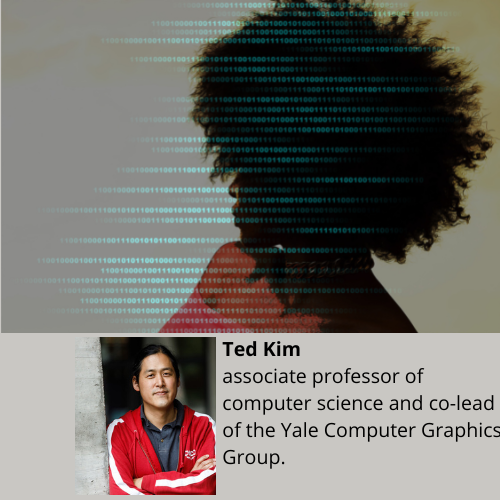Donation from Bungie Foundation Supports Anti-Racist Graphics Research at Yale

Imagine creating a character in your favorite video game and, despite the numerous options and customizations of facial features available, you are unable to generate an avatar that truly resembles you. This feeling of exclusion is something that many experience far too often and a result of prejudice inherited by modern computer graphics technologies.
It is widely assumed that the algorithms used to generate virtual humans are based in biological underpinnings that accurately reflect all races and ethnicities. In reality, however, these algorithms are deeply biased and based on predominantly European features. With a $1 million gift from the Bungie Foundation as part of Yale’s For Humanity campaign, Theodore Kim aims to develop new tools and algorithms to bring inclusivity to the digital screen.
“This research will serve as an example of how to identify the products of systemic racism in computer graphics and demonstrate how to take concrete steps to ameliorate their harm,” said Kim, associate professor of computer science and co-lead of the Yale Computer Graphics Group.
One of the physical characteristics that is most revealing of algorithmic bias is the representation of human hair. Computer graphics research has historically favored the simulation and rendering of straight hair, which is racially coded as European or Caucasian hair. The tools and algorithms that digital artists deploy treat this form of hair as the baseline. No equivalent model has been developed for naturally kinky hair – also known as Type 4 hair – a characteristic that most commonly occurs in Black communities.
Kim will lead a group that will investigate the algorithmic representation of Type 4 hair as a uniquely anti-racist problem. By developing new techniques for accurate representation, Kim intends to dismantle – at a fundamental technical level – the perpetuating prejudices that are baked into the technology.
Building on his team’s current efforts of measuring and analyzing the fundamental mechanical properties of Type 4 hair, Kim also intends to apply a variety of algorithmic acceleration techniques to advance the efficient, accurate simulation of Type 4 hair, without sacrificing visual fidelity. He will also investigate methods for high-quality geometric simplification, which will provide greater insight into hair representations that can be readily deployed into game and VR environments.
“The tools and algorithms we aim to develop will allow the full range of human hair, in its elegant variation and diversity, to be faithfully represented in film and games,” said Kim.
Kareem Shuman, Bungie Technical Dialogue Designer and Co-Lead of Black at Bungie employee resource group (ERG) said Kim’s work to expand representation is inspiring and especially important to younger audiences.
“By supporting this research, we get the opportunity to affect change on a much bigger scale,” he said. “The tools as they exist today do not work in favor of creating characters that look like us, but Prof. Kim's team is working to fix that. And we're so excited to see them succeed!"
Christine Edwards, Senior Manager of the Bungie Foundation, said it’s “truly an honor” to support Kim’s work.
“We endeavor to move our industry forward in anti-racism through our corporate and philanthropic work,” she said. “I am filled with optimism, knowing that the outputs of Prof. Kim’s research will create the opportunity for a massive shift in the industry’s ability to create truly representative characters.”
